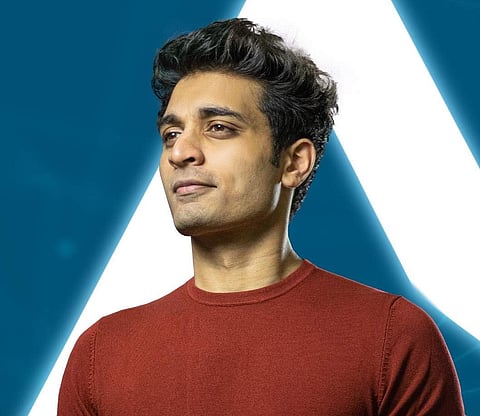

Varun Mayya was first introduced to entrepreneurship when he was in college. Hailing from Bengaluru, he began writing code at the age of 11 and since then he’s been completely engrossed in technology and the digital world that has suddenly come to the forefront now. Varun founded Avalon Meta in 2017, an EdTech platform that allows students to access pre-recorded content as a trial before subscribing to a teacher for live classes. Avalon Meta is said to be the world's first completely digital university. It also has an online university app with voice rooms and chat rooms that allow students to register and make friends just like in the real world. Varun (27) is also known as India's first-ever education influencer for his content on YouTube, Instagram and other social media platforms to interact with students and aspiring entrepreneurs.
We spoke to the young entrepreneur about education in the new age, his start-up and a lot more. Excerpts:
How do you envision the new-age of education with technology?
It’s going to be phenomenal. For starters, the advent of Jio was what truly kick-started the internet age in India. At Avalon Meta, we think that community-based education is going to revolutionise the space. People want to learn with a team. They want to learn in a cohort of students that they can interact with, learn from, and solve problems with. For example, in our premium offering, the 'ProLeagues', we’ve seen teams of people work on VFX movies together, build games together and run marketing campaigns as a team. A team not only makes learning fun, it also keeps you accountable as you don’t feel like letting your team down. Without high-speed internet, this instant level of communication without audio or video would be impossible.
Do you think India is prepared enough for a digital transformation in the education sector?
For sure. I remember being taught Physics in the 12th grade. There were concepts taught to me that I just couldn’t visualise. But after YouTube and similar online platforms came into the picture, I relearned the concepts years later because I could finally see and understand what other people were talking about. Video content has reinvented the space and live video is here to take it forward.
What suggestions do you have for students whose exams have been postponed amid Coronavirus?
With the shift to digital, companies are keeping a closer eye on the skill set of a person, and performance is the key to make or break your career. I would recommend that students learn real digital skills on the side. Here are a few they can consider learning: designing, coding, sales, marketing, finance or even video-editing.
Do you think schools should include entrepreneurship skills/training in classrooms?
I fundamentally believe it’s impossible to teach entrepreneurship. Even if you create a system of virtual currency and teach people how to hire people and work on problems in a group, it carries a different weight in the real world. That's why people are different when they use real money and when they play monopoly. It’s hard to teach a skill that’s so open-ended and where risk is something that can be learnt when you experience hands-on. The right thing to do, in my opinion, is to teach people how to think. Basics of finance, how to read P&L sheets, how to do your taxes, how to work with other people, how to read and write with clarity, how to speak on stage. These are the things that I think are really valuable and can be taught.
How is social media helping in online education of students with so many new and engaging ways coming up to teach kids?
Access and community — the two most important things here. Access to the best content. Content that’s been through a social 'review' process. And then community. A way to share our love for a subject with each other, make it fun for the group and hold each other accountable. These two things were impossible years ago. Today, through social media and its vast reach, nothing is impossible.
